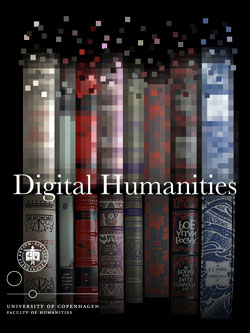The Emerging UX of Modern Languages: Key Trends in Digital Modern Languages

Talks on the Digital Turn in the Humanities (1/4): Lecture by Senior Lecturer Paul Spence, King’s College London.
Recent years have seen growing attention to the theme of “digital modern languages,” a diffuse concept which potentially involves a range of roles and sub-fields within modern languages, and which connects with the equally diffuse, and highly practice-driven, field of the digital humanities. “Modern languages” (ML) and “digital” are two terms which have not always sat comfortably side by side, and there is still a level of epistemic unease in the relationship between the two, but in recent years, some have argued that both fields have much to gain from stronger mutual interaction. The “digital mediations” strand on the AHRC-funded “Language Acts & Worldmaking” project studies these interactions, explores the conditions for mutually enriching engagement, and analyses the role of data-driven approaches to ML education and research. In this presentation, I will explore the UX (User Experience) of Modern Languages learning in 2019. How has digital transformed the way we research, educate and learn? How could ML researchers and educators react to new developments such as DuoLingo, GoogleTranslate and ear pieces which promise to provide instant oral translation? I will also propose some, increasingly urgent, ways in which ML and DH might collaborate more closely in the future.
Bio
Paul Spence is a Senior Lecturer in Digital Humanities at King’s College London and has an educational background in Spanish & Spanish American Studies. In the past he has led digital research on a number of projects involving digital edition, user-generated content, innovative visualisation and digital publishing. He co-developed the multi-platform publishing framework xMod (now Kiln), which has been used in over 50 projects. His research currently focuses on digitally mediated knowledge creation, global perspectives on digital scholarship and interactions between modern languages and digital culture. He leads the “Digital Mediations” strand on the AHRC-funded Language Acts and Worldmaking project.
Digital Humanities
Digital technologies are transforming teaching and research in the humanities. The Department of English, Germanic and Romance Studies is hosting four talks by international experts in the field. They will discuss the use of digital methodologies and tools and address the new possibilities and challenges. All are welcome to these free talks!
Please direct any questions to Robert Rix.
This is Talk No. 1/4.

